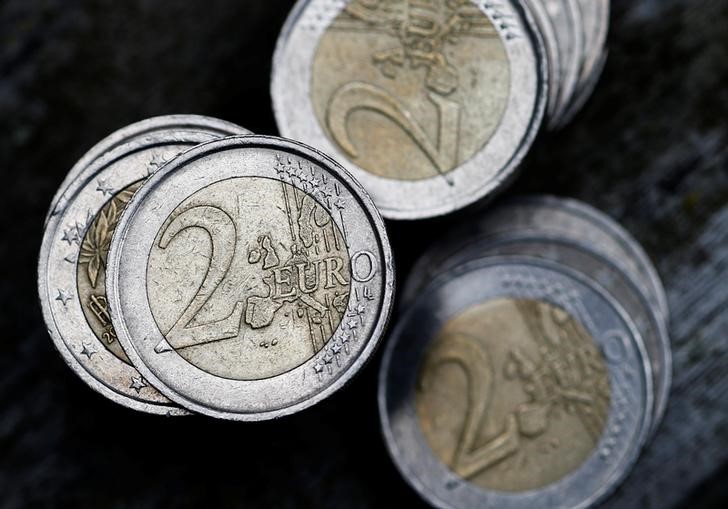(Bloomberg) -- The euro area’s rebound from the pandemic will be weaker than anticipated while inflation will be faster because of Russia’s war in Ukraine, according to draft projections by the European Commission.
With surging prices crimping demand and the danger of winter energy shortages draining confidence, gross domestic product is likely to advance 2.6% this year and 1.4% in 2023 -- down from May predictions for gains of 2.7% and 2.3%, according to new forecasts from the European Union executive arm seen by Bloomberg.
Inflation, already at a record that’s more than four times the European Central Bank’s 2% target, is now seen at 7.6% in 2022 and 4% next year, up from 6.1% and 2.7%.
The predictions may still change before they are officially published Thursday.
Despite still envisaging economic expansion in the 19-nation currency bloc, the souring outlook will do little to dispel fears that a recession is on its way, particularly as the Kremlin limits natural gas supplies to hit back at Europe over sanctions.
While consumers emerged from the pandemic flush with savings and pent-up demand for travel, that engine of growth is likely to fade as the summer ends and the reality of an energy crisis sets in.
Manufacturers in Germany, the continent’s biggest economy and among the most dependent on Russian gas, are facing major disruptions if energy needs to be rationed. Investor sentiment in the country’s outlook is at its lowest since Europe’s debt crisis.
Some economists see a recession in Europe as inevitable, even without the Kremlin halting energy supplies, with inflation also likely to remain elevated. That’s complicating the task of the ECB, which is only just embarking on a first interest-rate increase in more than a decade.
©2022 Bloomberg L.P.
